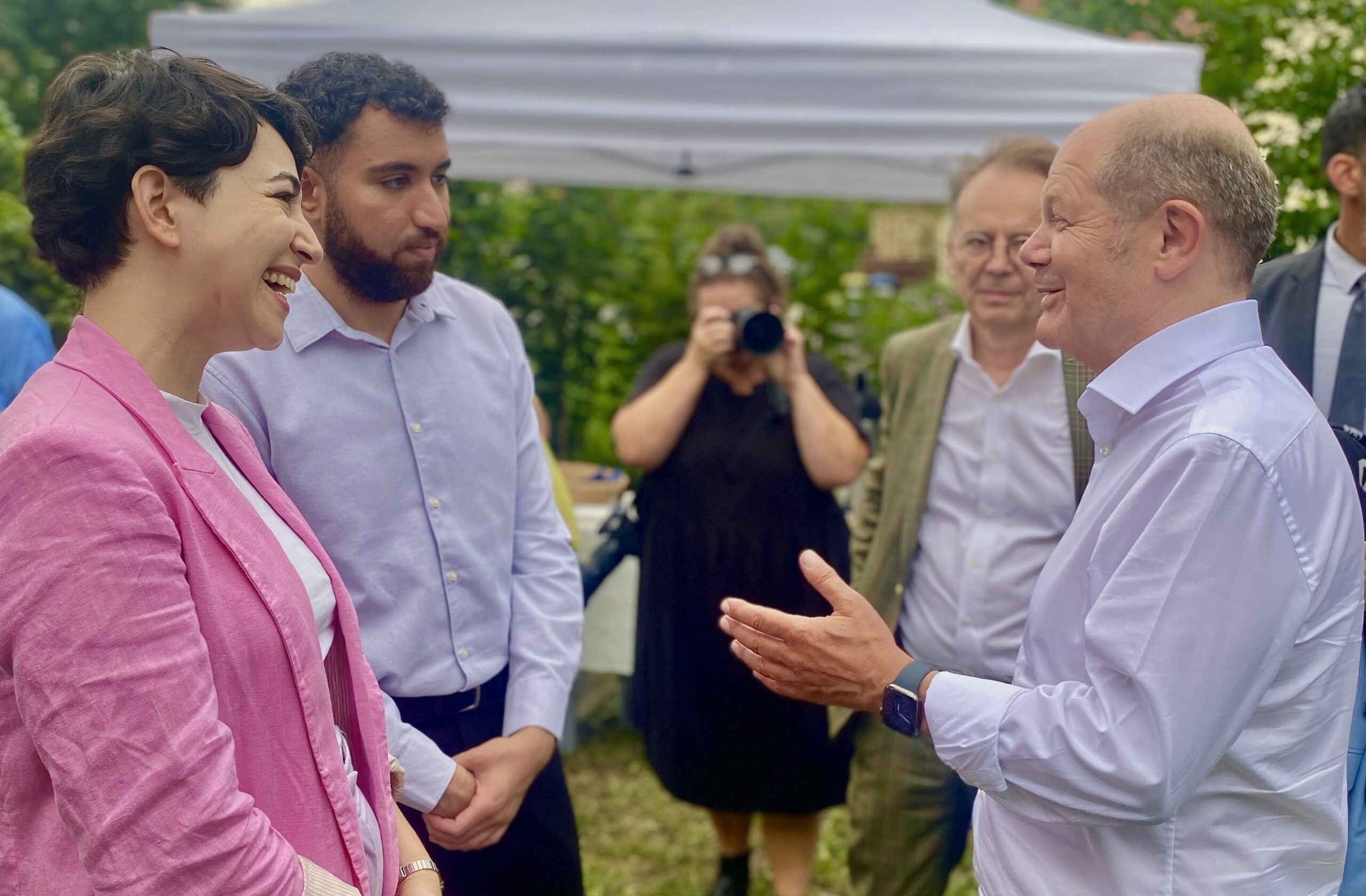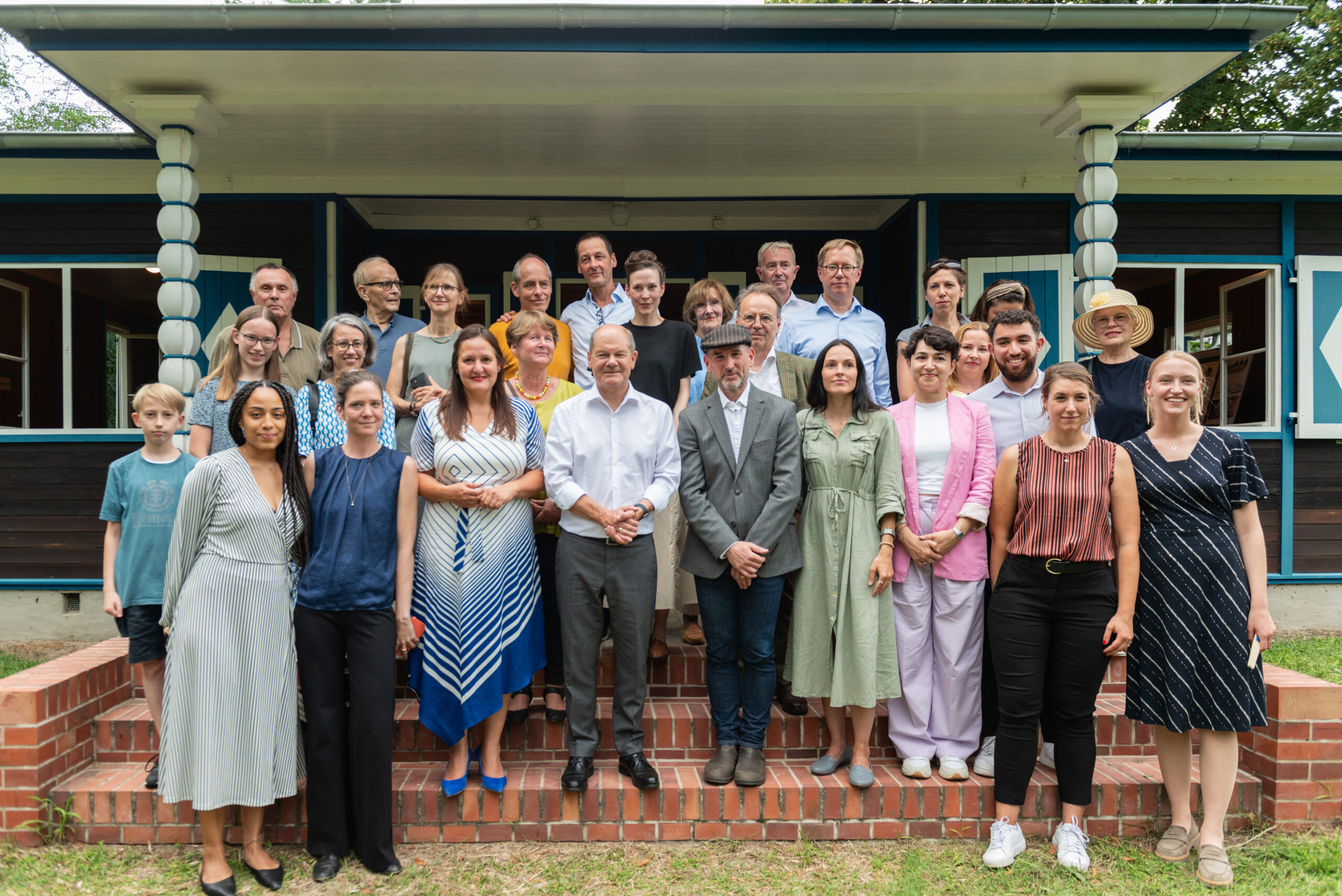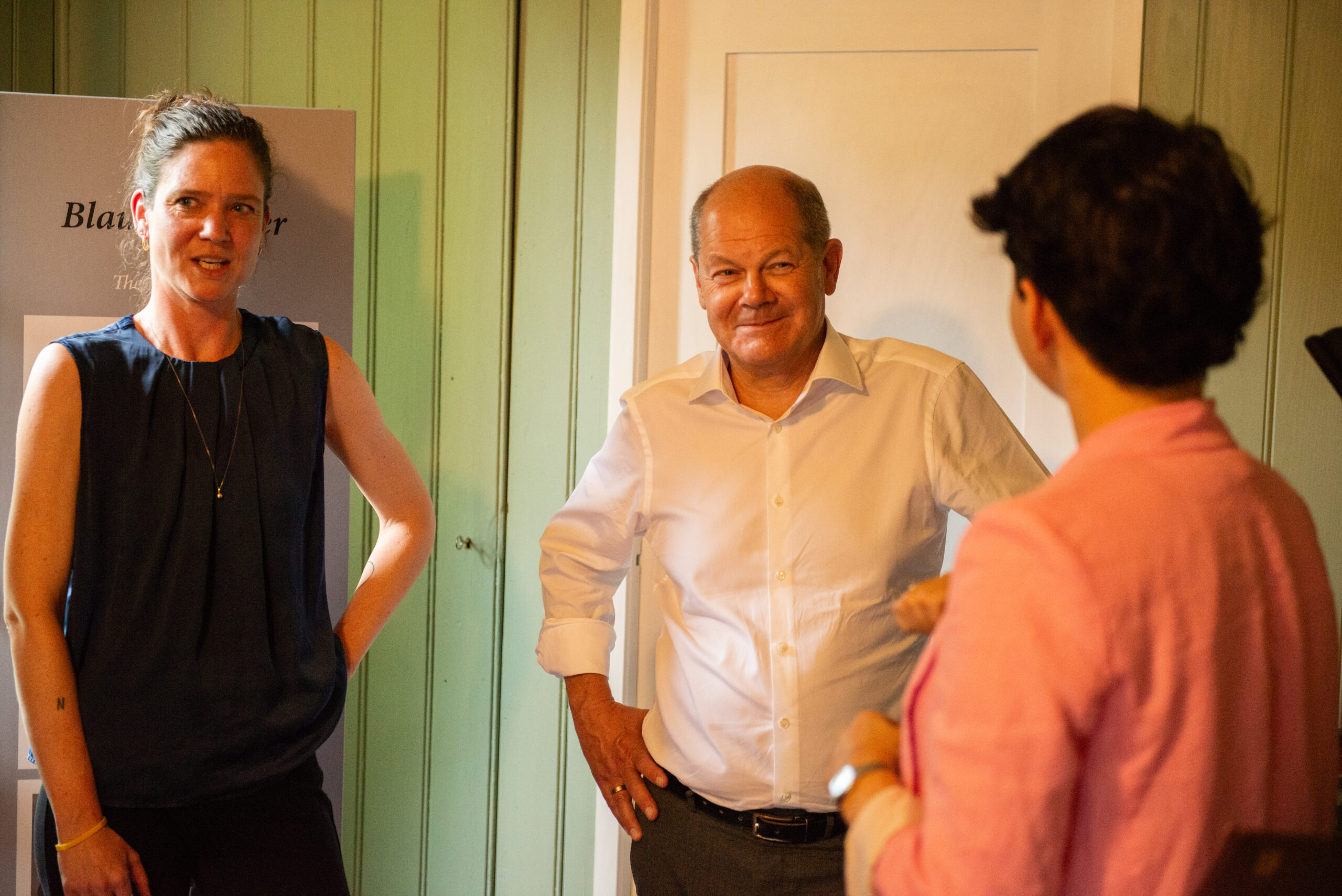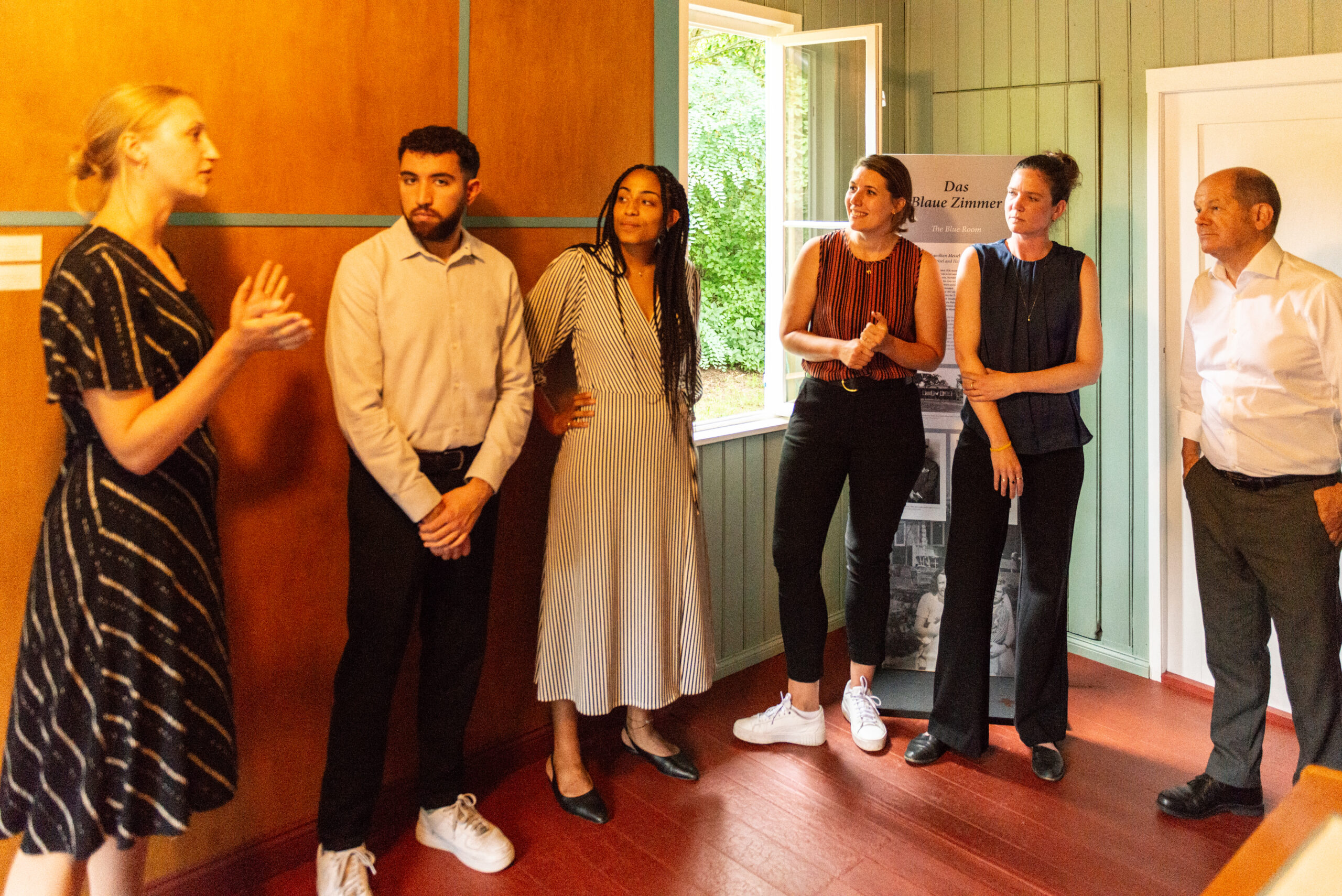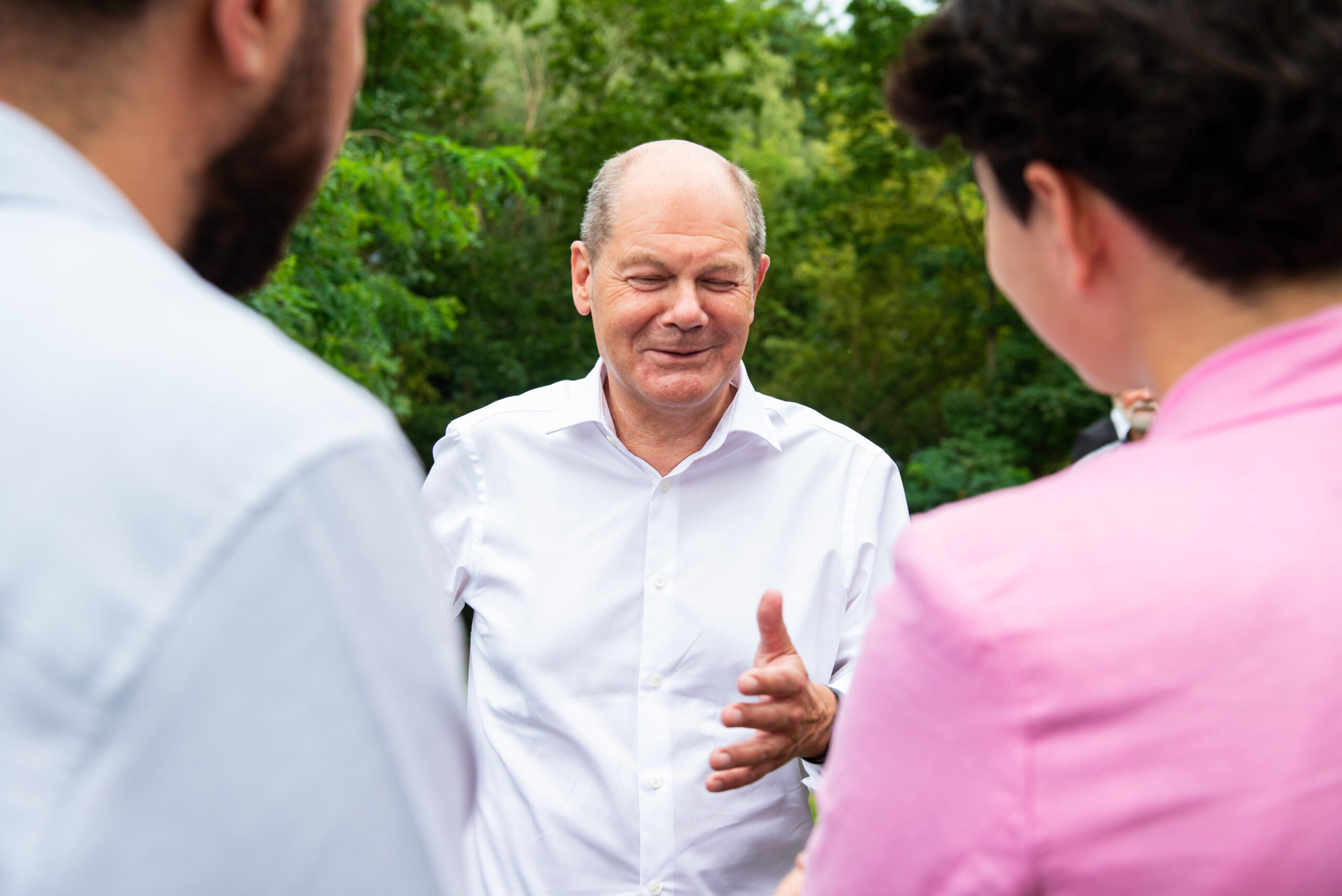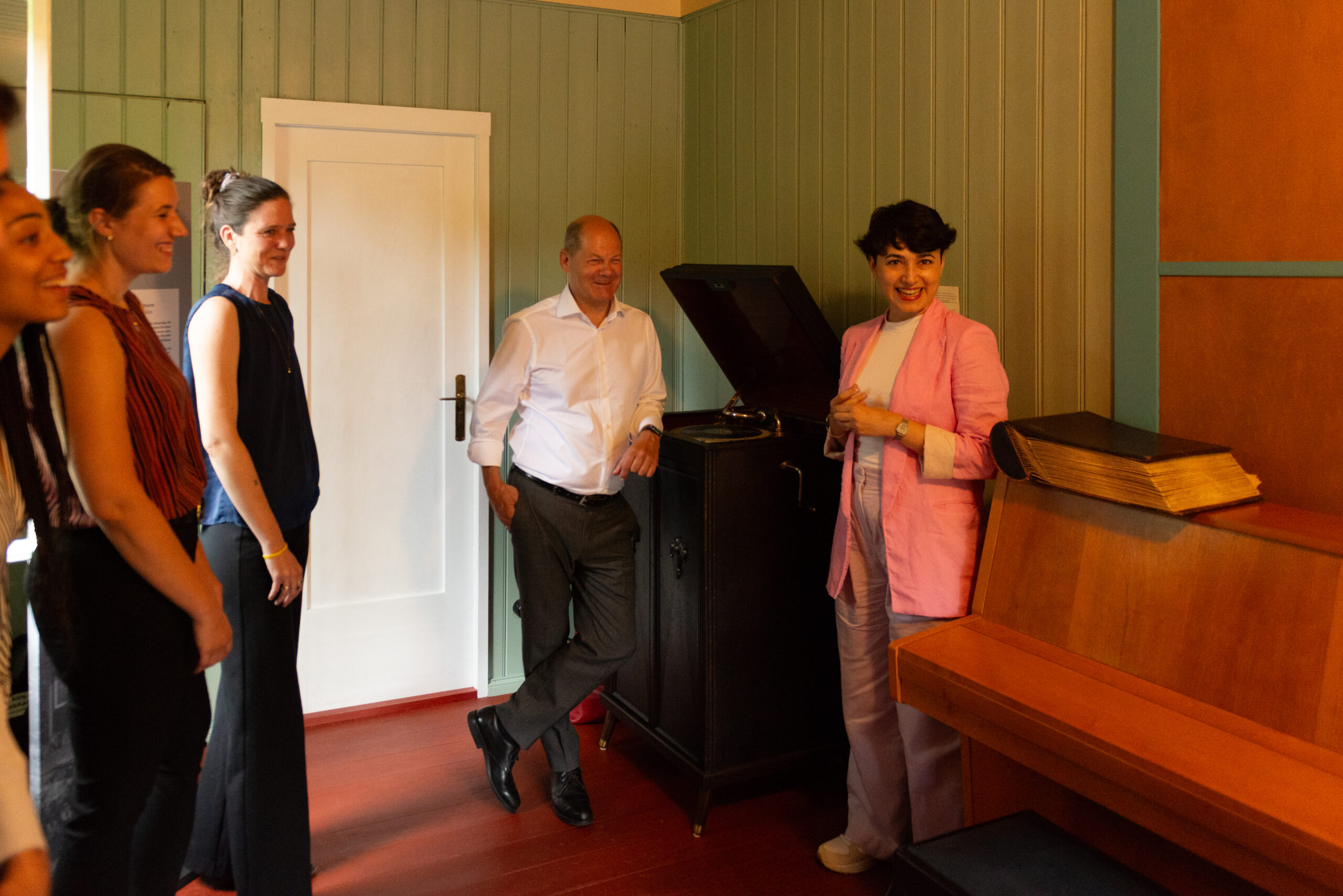Retrospect: Visit by Olaf Scholz to the Alexander House in Groß Glienicke
Visit by Olaf Scholz to the Alexander Haus in Groß Glienicke: Historical site to become a centre for forward-looking interreligious dialogue among future European leaders
Groß Glienicke, 14 August 2023 – German Chancellor Olaf Scholz visited the Alexander Haus in Groß Glienicke today. ‘Important, meaningful, and absolutely worthy of support’, said the Chancellor, summarising his impression of the Alexander Haus.
The Alexander Haus in Groß Glienicke stands for the history of one place, but also symbolically for the history of Germany. As the summer home of the Alexander family, it was the ‘heart and soul’ (Elsie Alexander) of the Jewish family who had to flee Germany in 1936, while it became a site emblematic of the division of Germany following the construction of the Berlin Wall. In collaboration with the local community as well as with regional, national, and European partners, the Alexander Haus is being developed as a unique venue for remembrance, learning, and discourse through interreligious-worldview dialogue. Olaf Scholz was visibly impressed by the plans for a seminar house, designed by the prominent international architect David Chipperfield, which will serve as a centre for European interreligious-worldview dialogue.
During his visit, Olaf Scholz engaged in intensive discussions with young European leaders who are passionately committed to advancing interreligious-worldview dialogue. They discussed the necessity of open exchange for better understanding the diversity of religious faiths and secular worldviews and for working together on solutions to global challenges.
‘Places like the Alexander Haus play a special role in the success of our work,’ said DialoguePerspectives board member Hannan Salamat, who continued: ‘Shaping the future requires safe spaces that can become brave spaces. And that is the vision of the Alexander Haus.’
‘It is a particular pleasure for the State of Brandenburg to be involved in the success of the Alexander Haus, a site that brings together history, present, and future in a unique way,’ added Manja Schüle, Minister for Science, Research, and Culture in Brandenburg.
Thomas Harding, a descendant of the Alexander family, emphasised the meaning of the Alexander Haus for an open and tolerant society in his address: ‘The Alexander Haus can be a trailblazing platform that brings together people from across Europe. I am impressed by the energy and engagement of the people who have come together here to create a space for a fruitful and respectful dialogue.’
About the Alexander Haus:
The Alexander Haus was built in 1927 as a summer home for the Alexander family of Berlin. After the Jewish family were forced to flee from the Nazis to England in 1936, the house was occupied by Will Meisel, a publisher and member of the Nazi Party, until 1952. At different points between 1953 and 2003, several families lived there at the same time, while the house was separated from the lake in 1961 by the construction of the Berlin Wall right through the site. The house was unoccupied from 2003, after which it decayed due to vacancy and vandalism. The British journalist and author Thomas Harding (‘The House by the Lake’), grandson of Alfred Alexander, began to research the history of the house in 2013, founding the Alexander Haus e.V. with a number of engaged citizens from Groß Glienicke.
The Alexander Haus was awarded the German Prize for Historical Preservation (Deutscher Preis für Denkmalschutz) in 2023.

